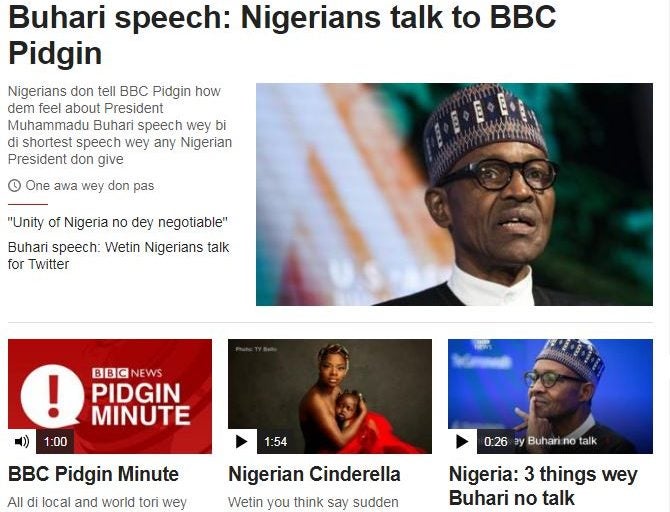
The BBC World Service has today launched the first of 12 new language services as part of its biggest expansion since the 1940s, backed by £289m in Government funding.
A digital Pidgin service for West Africa will stream the news to some 75m speakers in Nigeria alone with others in Cameroon, Ghana and Equitorial New Guinea.
Other digital and radio services, including in Korean, are to follow over the coming months. The additional services will mean BBC News will operate in more than 40 languages.
BBC director Tony Hall said the expansion marked “the start of a new chapter for the BBC”.
“The BBC World Service is one of the UK’s most important cultural exports,” he said.
“In a world of anxieties about ‘fake news’, where media freedom is being curtailed rather than expanded, the role of an independent, impartial news provider is more important than ever.
“The new services we’re launching will reach some of the most under-served audiences in the world.”
World Service director Francesca Unsworth said the expansion would “also bring benefits to audiences in the UK”.
“Having more journalists on the ground will enrich our international reporting, bringing news from areas which are often under-reported,” she said.
The BBC World Service has broadcast news to people across the globe for more than 80 years, beginning life as the BBC Empire Service in 1932.
The new Pidgin service is fully digital with six daily editions of BBC Minute – a 60-second audio news update – and two daily news video bulletins (coming in November).
Two additinal services for West Africa – in Yoruba and Igbo – will launch at the beginning of next year.
The new language services include: Afaan Oromo, Amharic, Gujarati, Igbo, Korean, Marathi, Pidgin, Punjabi, Serbian, Telugu, Tigrinya, and Yoruba.
Email pged@pressgazette.co.uk to point out mistakes, provide story tips or send in a letter for publication on our "Letters Page" blog

